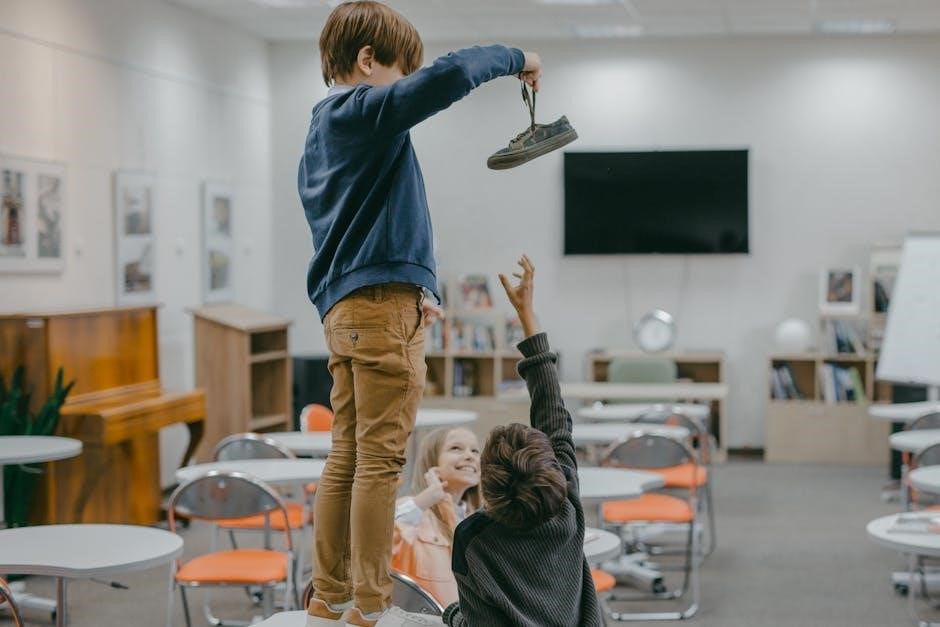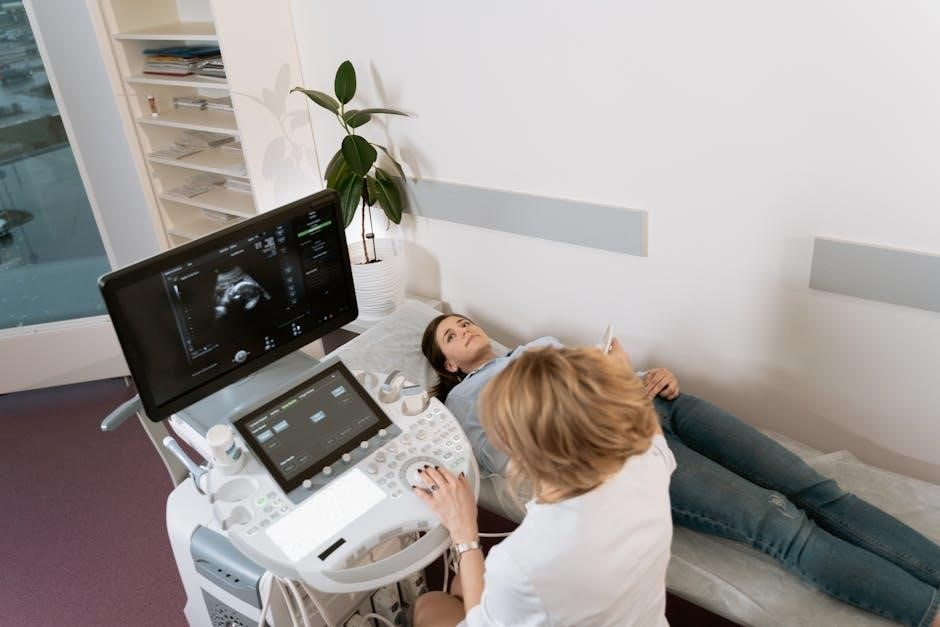Problem solving is a vital skill for first-year students, enabling them to navigate academic and real-world challenges effectively. It fosters critical thinking, creativity, and resilience, essential for success.
What is Problem Solving?
Problem solving is the process of identifying, analyzing, and resolving challenges or difficulties to achieve a desired outcome. It involves critical thinking, creativity, and decision-making skills to address both academic and real-world issues. For first-year students, problem solving is essential for navigating the transition to higher education, managing coursework, and developing independence. Effective problem-solving strategies include defining the problem, generating solutions, and evaluating their effectiveness. This skill is universal, applicable to various aspects of life, from personal decisions to academic tasks. By mastering problem-solving techniques, students can build resilience, improve their ability to adapt to new situations, and enhance their overall learning experience. Problem solving is not just about finding answers but also about understanding the process and learning from mistakes. It is a cornerstone of academic success and personal growth.
Importance of Problem Solving for First-Year Students
Problem solving is crucial for first-year students as it equips them with the skills to navigate the transition to university life and manage academic pressures. By developing this ability, students can better handle complex assignments, think critically, and make informed decisions. Problem solving fosters independence, allowing students to approach challenges confidently and systematically. It also enhances their ability to adapt to new environments and collaborate with peers, which is essential for group projects and shared learning experiences. Moreover, strong problem-solving skills contribute to improved time management and resource utilization, helping students balance academic responsibilities with personal commitments. Cultivating these skills early on sets a foundation for long-term success, both academically and professionally.

The Importance of Problem Solving Skills
Problem-solving skills are foundational for tackling academic and real-world challenges, fostering critical thinking, creativity, and decision-making. They empower individuals to approach issues methodically and innovatively, ensuring personal and professional growth.
Enhancing Academic Success
Effective problem-solving skills significantly enhance academic success by enabling students to approach challenges systematically. This fosters a deeper understanding of complex concepts, improving analytical and critical thinking abilities. Additionally, problem-solving encourages active learning, which can lead to better retention and performance. By breaking down problems into manageable parts, students can identify key issues and develop well-structured solutions. This methodical approach not only aids in completing assignments but also prepares students for higher-level thinking required in advanced courses. Furthermore, problem-solving cultivates resilience and adaptability, helping students overcome obstacles and setbacks. These skills are invaluable in both academic and real-world contexts, making problem-solving a cornerstone of long-term educational success.
Developing Critical Thinking
Critical thinking is a cornerstone of effective problem-solving, enabling students to analyze information, evaluate arguments, and make informed decisions. By engaging in problem-solving activities, first-year students develop the ability to approach challenges with a logical and systematic mindset. This skill is essential for academic success, as it allows learners to question assumptions, identify patterns, and explore creative solutions. Critical thinking also fosters intellectual curiosity, encouraging students to seek deeper understanding and meaning in their studies; Moreover, it enhances their ability to adapt to new situations and navigate complex problems, both in and out of the classroom. As students refine their critical thinking skills, they become more confident in addressing challenges head-on, laying a strong foundation for lifelong learning and personal growth. This development is particularly crucial during the transition to higher education, where independent thinking is highly valued.

Effective Problem-Solving Techniques
Effective problem-solving techniques involve identifying the problem clearly, exploring various solution strategies, and evaluating their effectiveness to find the best approach, enhancing critical thinking and decision-making skills.

Understanding the Problem
Understanding the problem is the first and most crucial step in effective problem-solving. It involves clearly defining the issue, identifying key components, and gathering relevant information to form a solid foundation for further analysis. For first-year students, this stage helps in avoiding misunderstandings and ensures that efforts are directed toward the right solution. By breaking down complex problems into manageable parts, students can better comprehend the root cause and develop targeted strategies. Additionally, recognizing the context and scope of the problem enables them to prioritize tasks and allocate resources efficiently. This initial understanding not only saves time but also enhances the overall quality of the solutions generated. It is essential for students to cultivate this skill early in their academic journey to build a strong problem-solving foundation.
Generating Solutions
Generating solutions is a creative and analytical process that follows understanding the problem. It involves brainstorming multiple ideas, evaluating their feasibility, and selecting the most effective options. For first-year students, this stage requires critical thinking and open-mindedness to explore diverse perspectives. Techniques such as mind mapping, SWOT analysis, and reverse brainstorming can help students uncover innovative solutions. Additionally, leveraging digital tools like problem-solving apps or collaborative platforms can enhance idea generation. It’s important to consider the resources available, such as educational apps or printed workbooks, to refine and organize ideas effectively. By fostering a culture of creativity and experimentation, students can develop robust solutions that address the root cause of the problem. This step not only builds confidence but also equips students with the skills to tackle complex challenges in their academic and personal lives. Continuous practice improves their ability to generate practical and impactful solutions.
Implementing and Evaluating Solutions
Once solutions are generated, the next step is to implement and evaluate them. This involves creating a clear action plan, assigning tasks, and setting timelines to ensure execution. For first-year students, this stage requires organization and accountability. Tools like SWOT analysis or Gantt charts can help in planning and monitoring progress. Evaluating solutions involves assessing their effectiveness, identifying what worked well, and what could be improved. This step is crucial for learning and refinement. Digital tools such as project management software or collaborative platforms can facilitate tracking and feedback. Additionally, reflecting on outcomes helps students understand the impact of their decisions and fosters continuous improvement. By practicing implementation and evaluation, students develop practical skills in turning ideas into actionable results, preparing them for real-world challenges. This process also enhances their ability to adapt and make data-driven decisions. Regular reflection and adjustment are key to achieving desired outcomes.

Tools and Resources for Problem Solving
Various tools assist first-year students in problem solving, including digital platforms, educational apps, and printed workbooks designed to enhance critical thinking and organizational skills effectively.
Digital Tools for Problem Solving
Digital tools play a significant role in enhancing problem-solving skills among first-year students. Platforms like Khan Academy, Coursera, and Quizlet offer interactive resources to tackle academic challenges effectively. Additionally, apps such as Trello and Asana help students organize tasks, prioritize assignments, and manage time efficiently. These tools provide step-by-step guides, video tutorials, and collaborative features that foster critical thinking and creativity. For instance, mind-mapping software like MindMeister enables visual brainstorming, while math-solving apps such as Photomath assist in understanding complex concepts. Digital tools also promote self-paced learning, allowing students to review and practice problem-solving strategies at their convenience. By leveraging these resources, first-year students can develop a structured approach to problem-solving, ensuring better academic outcomes and personal growth.
Educational Apps for First-Year Students
Educational apps are invaluable for first-year students seeking to enhance their problem-solving skills. Apps like Duolingo and Khan Academy provide interactive lessons and exercises tailored to various subjects, fostering a deeper understanding of concepts. Quizlet is particularly useful for memorization and practice, offering flashcards and study games. Additionally, apps such as Photomath assist with math problems by breaking down solutions step-by-step, while Trello helps students organize tasks and manage time effectively. These tools cater to different learning styles, ensuring that students can adopt methods that suit them best. By leveraging these apps, first-year students can access personalized learning experiences, improving their ability to tackle academic challenges confidently. Such resources are essential for building a strong foundation in problem-solving, making them indispensable for academic success. They also encourage self-directed learning, empowering students to take control of their education.
Printed Materials and Workbooks
Printed materials and workbooks remain essential resources for first-year students aiming to enhance their problem-solving skills. These tools provide structured exercises and activities designed to improve critical thinking and logical reasoning. Workbooks often include step-by-step guides, case studies, and practice problems that cater to diverse learning styles. For instance, logic puzzle books and math-focused workbooks are popular for sharpening analytical abilities. Additionally, printed study guides offer comprehensive overviews of key concepts, helping students build a strong academic foundation. Many educational publishers release updated editions annually, ensuring relevance and alignment with curriculum standards. Furthermore, workbooks encourage hands-on learning and reflection, allowing students to track their progress. They are particularly useful for those who prefer tangible learning materials over digital alternatives. By incorporating these resources into their study routines, first-year students can systematically develop their problem-solving skills, fostering both academic success and personal growth. These materials remain indispensable for effective learning and skill development.
First-year students often face challenges like time management, information overload, and procrastination, hindering effective problem-solving. These issues can lead to stress and reduced academic performance if not addressed promptly. Time management is a significant challenge for first-year students, often leading to missed deadlines and increased stress. Balancing academic tasks, social life, and personal responsibilities can be overwhelming, especially for those new to independent learning. Many students struggle to prioritize tasks effectively, resulting in poor allocation of study time. This can lead to rushed assignments, inadequate preparation for exams, and a higher likelihood of burnout. Additionally, procrastination often exacerbates time management problems, as students delay starting tasks until the last minute. To address this, developing a structured schedule and using tools like calendars or to-do lists can help improve efficiency. Learning to break tasks into smaller, manageable steps is also crucial. By mastering time management, students can reduce stress and enhance their overall academic performance. Reflecting on time usage and seeking support when needed are key steps toward overcoming these challenges and fostering long-term success. Information overload is a common challenge for first-year students, as they navigate a flood of new data from textbooks, online resources, and lectures. This overwhelming volume of information can lead to confusion, difficulty in focusing, and decreased productivity. Students often struggle to identify relevant details, resulting in frustration and poor academic outcomes. The abundance of digital resources, while helpful, can exacerbate the problem, making it harder to distinguish between credible and unreliable sources. To combat this, students can develop strategies such as active note-taking, prioritizing tasks, and using organizational tools like mind maps or digital folders. Additionally, breaking down complex topics into smaller, manageable parts can help reduce feelings of overwhelm. Seeking guidance from professors or academic advisors is also crucial, as they can provide clarity and direct students to the most essential resources. By mastering these strategies, students can effectively manage information overload and improve their learning efficiency. Procrastination and lack of motivation are significant barriers for first-year students, often leading to delayed task completion and missed deadlines. These issues stem from unclear goals, perfectionism, or fear of failure, which can hinder academic progress. Students may feel overwhelmed by the transition to higher education, struggling to balance responsibilities and leisure time. This can result in poor time management and a lack of focus on important tasks. To address this, students can set realistic goals, break tasks into smaller steps, and establish deadlines. Creating a structured schedule and using productivity tools can help maintain consistency. Additionally, seeking support from peers, mentors, or counseling services can provide motivation and accountability. Recognizing the root causes of procrastination and implementing strategies to overcome them is essential for academic success and personal growth during the first year of studies. Real-life examples and case studies provide practical insights into problem-solving, helping first-year students apply theoretical concepts to everyday challenges and develop critical thinking skills through hands-on experiences. Group problem-solving activities are essential for first-year students, fostering collaboration and teamwork. These exercises encourage students to share diverse perspectives, enhancing creativity and critical thinking. By working together, students learn to communicate effectively, delegate tasks, and combine strengths to tackle complex challenges. Real-life examples, such as group projects or case studies, provide practical opportunities for students to apply problem-solving strategies. For instance, collaborative brainstorming sessions or role-playing scenarios help students develop confidence and adaptability. Such activities also promote mutual support and accountability, preparing students for future professional environments. Through group problem-solving, students gain invaluable experience in resolving conflicts and managing time efficiently. These collaborative efforts not only strengthen academic performance but also build interpersonal skills, which are crucial for long-term success. Group activities ensure that students learn to approach problems holistically, considering multiple viewpoints and solutions. This collaborative approach is a cornerstone of effective problem-solving in both academic and real-world contexts. Individual problem-solving scenarios are crucial for first-year students, as they help develop independent thinking and self-reliance. These scenarios often involve personal challenges, such as managing time effectively or overcoming academic obstacles. For example, a student might struggle with balancing assignments and extracurricular activities, requiring them to prioritize tasks and create a structured schedule. Solving such problems independently fosters critical thinking and resilience. Students learn to identify the root cause of an issue, analyze possible solutions, and implement the most effective one. Individual problem-solving also encourages self-reflection, allowing students to evaluate their decisions and outcomes. This process helps build confidence and prepares them for more complex challenges in the future. By addressing problems on their own, students develop a stronger sense of responsibility and a growth mindset, which are essential for long-term success. These skills are further enhanced through practice and continuous improvement. Reflective learning from mistakes is a powerful strategy for first-year students to enhance their problem-solving abilities. By analyzing errors and understanding their causes, students can gain valuable insights and improve future outcomes. This process involves identifying what went wrong, evaluating the decisions made, and exploring alternative approaches. Reflective learning fosters a growth mindset, encouraging students to view mistakes as opportunities for growth rather than failures. It also promotes self-awareness, critical thinking, and resilience. For instance, if a student struggles with a math problem, reflecting on their approach can help them identify gaps in understanding and adjust their study strategies. Over time, this practice builds confidence and strengthens problem-solving skills, enabling students to tackle challenges more effectively. Reflective learning is a key component of academic and personal development, helping students navigate complexities and achieve their goals. It is a lifelong skill that benefits all areas of life. Problem solving is a cornerstone of academic and personal growth for first-year students. It fosters resilience, critical thinking, and adaptability, equipping them to navigate challenges effectively and achieve long-term success. Problem solving is a fundamental skill for first-year students, enhancing academic success and personal development. It involves understanding challenges, generating solutions, and evaluating outcomes. Effective techniques include critical thinking, time management, and overcoming procrastination. Digital tools, educational apps, and workbooks provide valuable support. Real-life examples and group activities illustrate practical applications, while reflective learning from mistakes fosters growth. Continuous improvement and the use of recommended resources, such as online courses and study groups, further strengthen problem-solving abilities. By mastering these strategies, students build resilience and adaptability, essential for overcoming future challenges. Embracing a growth mindset is crucial for first-year students to enhance their problem-solving skills. Encouraging regular practice and reflection helps build confidence and adaptability. Leveraging digital tools and educational resources can further support this journey. Engaging in group activities and seeking feedback fosters collaborative learning and personal growth. Celebrating small achievements motivates students to pursue ongoing development. By staying proactive and persistent, they can overcome challenges and refine their problem-solving strategies. Continuous improvement not only enhances academic performance but also prepares students for lifelong learning and success in their future endeavors. Explore recommended books, online courses, and study groups to deepen problem-solving skills. Utilize educational apps and digital tools for interactive learning experiences tailored to first-year students’ needs and growth. by Jane Smith includes step-by-step guides for academic success. These resources are designed to help students develop effective techniques for tackling challenges. Many universities recommend these books for their comprehensive approach to skill development. They are available in both digital and print formats, making them accessible for all learners. These materials are ideal for supplementing coursework and fostering independent learning. By exploring these readings, students can gain a deeper understanding of problem-solving methodologies and apply them to various scenarios. These books are highly rated and widely used, ensuring a strong foundation for academic and personal growth. and Harvard’s “Effective Problem Solving Strategies”. These tutorials are designed to help students break down complex problems into manageable steps. Additionally, websites like Udemy and Skillshare offer affordable courses tailored to first-year students. These resources are accessible anytime, allowing students to learn at their own pace. They are ideal for supplementing coursework and improving problem-solving techniques. By leveraging these online tools, students can gain confidence in tackling academic and personal challenges effectively. Support networks and study groups play a crucial role in helping first-year students develop problem-solving skills. Universities often provide access to peer mentoring programs, where experienced students guide newcomers through challenges. Study groups offer a collaborative environment where students can share ideas, discuss difficulties, and learn from one another. Online forums and social media groups dedicated to problem solving also serve as valuable resources. Many educational institutions organize workshops and seminars focused on enhancing problem-solving abilities. Additionally, libraries and academic centers often host study sessions tailored for first-year students. Engaging in these networks fosters teamwork, improves communication, and builds confidence. By participating in group activities, students can gain practical insights and real-life examples of effective problem-solving strategies. These support systems are essential for navigating the transition to higher education and mastering the skills needed for long-term success.
Common Challenges in Problem Solving
Time Management Issues
Information Overload

Procrastination and Lack of Motivation

Case Studies and Real-Life Examples
Group Problem-Solving Activities
Individual Problem-Solving Scenarios
Reflective Learning from Mistakes

Concluding Thoughts on Problem Solving
Encouragement for Continuous Improvement

Additional Resources for Further Learning
Recommended Reading Materials
Online Courses and Tutorials
Support Networks and Study Groups




Leave a Reply
You must be logged in to post a comment.